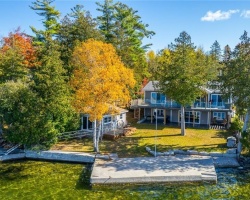Homebuying tips for unmarried couples

A growing number of Canadians who are choosing to buy property without tying the knot.
The number of common-law couples in Canada rose 13.9 percent between 2006 and 2011, according to Statistics Canada. While there’s no Canadian data on how many of those couples choose to purchase instead of rent, a 2013 study in the U.S by Coldwell Banker Real Estate found that 17 per cent of couples bought a home before they were married, with that number rising to 24 percent among millennials.
Five questions you need to answer before you buy a house together
Who’s covering the down payment?
If you’re not married and break up in the first few years, the house will likely be divided proportionally according to who contributed to the down payment. If only one-half of the couple can contribute to the down payment, it’s possible the other party could be left with nothing, even if he or she helped pay the mortgage or for renovations.
Have you thought of all the monthly, extra expenses?
If only owning a house was as simple as paying the mortgage. One of the biggest mistakes people make is they crunch the numbers but then they’re not really considering setting aside money for an emergency. Who’s responsibility is it to pay the plumber when you have a leak?
Have you drafted a cohabitation agreement?
No? Well, you should. To avoid he said/she said arguments, later on, write down how you’ll divide the household responsibilities and who is entitled to what if you separate. You can always change it later on.
Have you gotten professional legal help?
You’ll want it. A lawyer will sit down with you and help you draft a fair cohabitation agreement, and advise you on your province’s common-law provisions.
I think for a lot of young couples buying a home is an economic decision and it’s a better idea than renting. It’s relatively easy to sell a home if you decide you want to do that, but getting divorced is a much more complicated thing.
But is it really so much easier to offset assets if a couple falls apart, especially if it’s acrimonious? How does the court divide these assets? What are the risks to entering such an arrangement?
Canada does not have true common-law marriage. Although provinces and various government agencies, like the CRA, may recognise marriage-like relationships in specific contexts, automatic rights to property are not included. But, couples who act like they’re married and buy property together can be entitled to most of the same protections that the law affords legally married couples.
The main difference is that a married couple, from the date of the ceremony, is considered a partnership, regardless of who actually deposits and withdraws from the piggy bank. Upon the breakdown of the marriage, the piggy bank is divided equally, usually to the benefit of the lower-earning spouse.
An unmarried couple, on the other hand, is afforded this protection only insofar as their habits indicate: Do they have a joint bank account? How long have they been together? The courts treat the separation of assets as an “accounting exercise, with the house divided according to who put in what.
The longer you live together, the deeper the roots and the more you will resemble a legally married couple.
Make the mortgage match the finances
Wait until you are both creditworthy to apply for a mortgage together. In couples where one (person) isn’t creditworthy and one is, with the deed in both names but the mortgage is in one person’s name, you have two people with an asset, but only one person is bearing the liability.
Don’t assume you can just add someone to an existing mortgage. Banks require a refinance to do that.
Title your home accordingly, Don’t take a one-title-fits-all approach
Unmarried couples can either hold a title as joint tenants, in which each person owns the property equally and their share is automatically conferred to the other upon death of the first; or as tenants in common, where each person owns a percentage of the home’s assets, with that percentage going to next of kin, or named beneficiaries, upon death.
If you’re unmarried, you need estate-planning documents in place, especially as tenants in common.
If you die without a will and you wanted your property to go to your co-owner, unless it’s specified in a will, that won’t happen. It might go to your parents.













